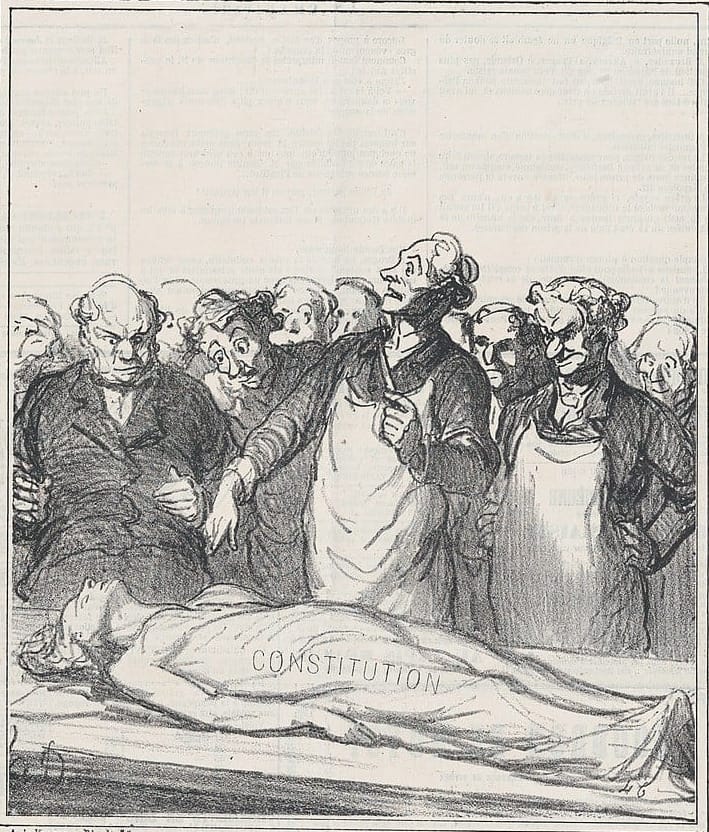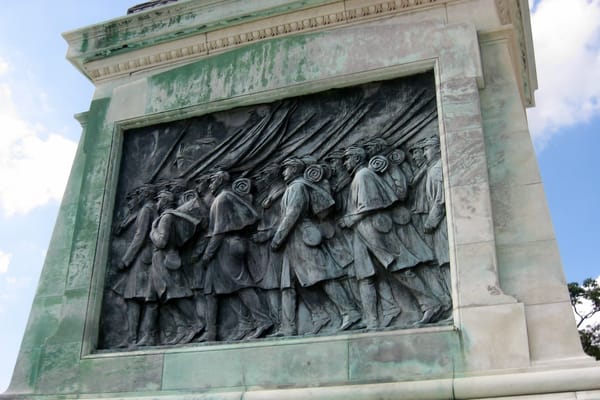Birthright Citizenship and Nationwide Injunctions
The Court has suddenly decided to place limitations on injunctions when they were preventing a brazenly unconstitutional executive order.

On Friday, the Supreme Court handed a partial victory to the Trump Administration and its quest to amend the 14th Amendment by executive order.
In Trump v. CASA, Amy Coney Barrett, writing for a 6-3 Republican majority, held that universal injunctions “likely exceed the equitable authority” of the federal courts.
Background
The first clause of the 14th Amendment says that “All persons born or naturalized in the United States, and subject to the jurisdiction thereof, are citizens of the United States and of the State wherein they reside.” On January 20, 2025, Donald Trump issued an executive order purporting to safeguard “the meaning and value of American citizenship.” The executive order articulated certain circumstances in which a person is not “subject to the jurisdiction” of the United States, and therefore is not a birthright citizen.
Almost immediately, a coalition of individual plaintiffs, states, and organizations, filed lawsuits seeking to enjoin implementation of the order. Three federal courts across the nation—Maryland, Washington, and Massachusetts—granted the sought after relief in the form of nationwide preliminary injunctions.
In response, the Trump Administration asked the Supreme Court to stay the injunctions. Specifically, the Administration asked the Court to limit the scope of the injunctions such that they only provided relief to the plaintiffs, rather than everyone nationwide. The Court heard oral argument on the scope of nationwide relief on May 15 and issued its opinion on June 27.
The Opinion
Justice Barrett wrote the majority opinion for a 6-3 conservative majority, narrowing the scope of nationwide injunctions. Specifically, the majority holds that the Judiciary Act of 1789, a foundational statute that established the first federal courts, does not permit district courts to issue nationwide injunctions.
The majority concluded that the universal injunction was not a form of equitable relief at the time of the founding of the United States, and therefore not justified as a matter of “history and tradition.” Universal injunctions “were not a feature” of litigation until the 20th century and “remained rare” until the 21st century. To be clear, the Court leaves open the possibility that courts could issue nationwide relief to state plaintiffs.
The majority points to class actions, not nationwide injunctions, as the proper form of relief. Class actions are governed by Rule 23 of the Federal Rules of Civil Procedure. Rule 23 sets out guidelines for when a class action is proper and can be maintained in federal court. Importantly, class actions bind only the plaintiffs who are members of the certified class. In other words, if a federal court grants an injunction to a class of plaintiffs, the injunction only prohibits the enjoined party (usually the government) from implementing the challenged action against the class. Class actions are not nationwide by definition. However, if a class of plaintiffs are geographically diverse, the practical effect of an injunction in a class action would be largely the same as a nationwide injunction.
Finally, the majority ordered the lower courts to evaluate whether narrower injunctions are appropriate with respect to the plaintiffs who challenged the Trump Administration’s executive order. The Court also allowed the Administration to begin “developing and issuing public guidance” to implement the order. As a result of this decision, the executive order may now go into effect in 30 days.
The relevant context
It’s important to note that the constitutional issue—whether Trump can effectively amend the 14th Amendment by executive order—was not at issue in Trump v. CASA. The majority clearly acknowledges that fact. But it’s also important to note that, at oral argument, some justices hinted that they believed the order is unconstitutional.
Scholars have been debating the propriety of nationwide/universal injunctions for years. Notably, the lines of the debate have taken a bipartisan nature. For example, Sam Bray and Nicholas Bagley have been two of the most prominent critics of nationwide injunctions. Mila Sohoni has defended the historical pedigree of nationwide injunctions.
I express no opinion on which side of the debate is correct. I do, however, have a few observations apart from the academic debate on nationwide injunctions.
First, the Court could have confronted the scope of nationwide injunctions prior to this current legal dispute. The majority opinion here cites several concurring opinions in which current members of the Court emphasized the need to address the scope and propriety of universal relief. As the majority acknowledges, quoting Bray and Will Baude, we have “reached a state of affairs where almost every major presidential act was immediately frozen by a federal district court.” This is objectively true. I think there are legitimate concerns about the propriety of federal district courts having the ability to block the executive branch on such a sweeping scale.
But setting that aside, the optics of this decision are bad. The text of the 14th Amendment seems clear: “All persons born or naturalized in the United States, and subject to the jurisdiction thereof, are citizens of the United States and of the State wherein they reside.” This is confirmed by the Court’s 1898 decision in Wong Kim Ark, as well as by prominent scholars on both sides of the political spectrum. No serious scholar argues that the president can amend the Constitution by executive order. Though the constitutionality of the executive order was not at issue here, if we are taking text, precedent, and history seriously, the Court should have allowed the injunctions to stay in place. If the Court has punted on the propriety of nationwide injunctions before, it’s unclear why they decided to place these limitations on injunctions that were preventing a brazenly unconstitutional executive order.
Second, the decision in Trump v. CASA does not completely prevent district courts from providing relief to plaintiffs who are harmed by the executive order. In fact, litigants are already filing amended complaints seeking class wide relief. But certification of a class action is not an easy process, and it’s an open question as to whether harmed individuals will even seek certification. Litigation is a long, painful process and immigration lawyers are overworked and overburdened as it is. Moreover, some attorneys may think twice about challenging the Trump Administration for fear of legal, political, and social retaliation. Trump has called prominent lawyers out by name and has retaliated against law firms that he sees as political enemies. And this is to say nothing about the more widespread retaliation that Trump has sought to impose on other groups and organizations.
Third, Justice Barrett criticizes Justice Jackson’s dissenting opinion for criticizing an imperial presidency “while embracing an imperial judiciary.” This is bad faith. I’ve been quite critical of the Supreme Court, both in these pages and in academic journals, for aggrandizing their own power. But if there is any reason for the courts to get involved, it is to prevent blatant violations—indeed unilateral amendment—to the Constitution. Justice Barrett’s criticism should not be taken seriously and it demonstrates a profound lack of self-awareness, not only on Barrett’s part, but on the part of the other five members who joined her opinion.
Finally, the fight is not over. As mentioned above, litigants are already challenging the executive order on a class wide basis, and I’m confident the constitutionality of the order will make its way back up to the Court.
Featured image is An Anatomy Lesson




